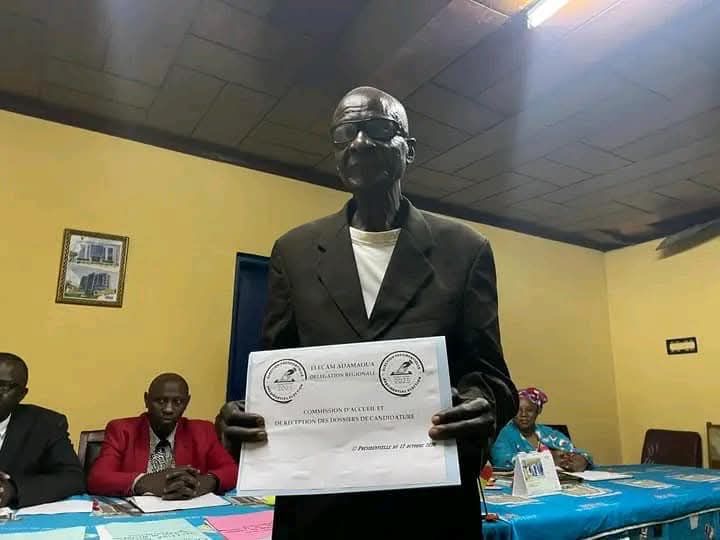Batoua Silas, a livestock technician and grassroots development advocate, has officially submitted his candidacy to run in Cameroon’s 2025 presidential election. The announcement marks a significant moment in the country’s political climate, as Silas presents himself as a humble, people-focused alternative to Cameroon’s long-standing political elite.
The 2025 presidential election, scheduled for October 12, has drawn a record number of candidates, including incumbent President Paul Biya, who is seeking an eighth term in office at the age of 92. Among the lesser-known contenders, Silas has quickly gained attention on social media platforms for his modest approach and rural development-driven campaign.
A viral video posted by Dezzy J TV on TikTok showed Silas seated at a local event, modestly dressed and holding a file believed to contain his nomination papers. The image, widely circulated online, has been hailed as a symbol of humility, sparking praise from supporters who see him as a man of the people.
“We’ve had leaders in suits and cars. Now we need one who wears dust and speaks truth,” one supporter commented on TikTok.
Silas’s campaign is centered on ending hunger and improving food security in Cameroon. Drawing from his professional background, he advocates for empowering smallholder farmers, promoting sustainable agriculture, and decentralizing food production to reach even the most remote communities.
“Hunger cannot be solved by policy alone. It must be tackled where food is grown, in our farms, villages, and communities,” he said during a recent engagement in northern Cameroon.
Supporters argue that Silas represents a break from the traditional political mold. With no major political machinery or vast financial backing, his campaign has relied on grassroots mobilization and social media engagement. Despite these limitations, many view his candidacy as a genuine effort to bring real-world experience into national leadership.
Silas’s presidential bid comes amid growing public demand for political renewal. Civil society groups, youth movements, and religious leaders have all called for greater inclusivity and leadership that reflects the needs of ordinary Cameroonians. His emergence in the race has added to what analysts are calling one of the most unpredictable and diverse elections in the country’s history.
While his chances of winning remain uncertain in a highly competitive field, observers say Batoua Silas’s candidacy is already having an impact. His message of agricultural reform and rural empowerment has struck a chord with many, highlighting the deep disconnect between urban political power centers and rural realities.
As the countdown to the October vote continues, Cameroonians will be watching closely to see how far this quiet contender can go, and whether his call for change from the ground up will reshape the nation’s political future.

